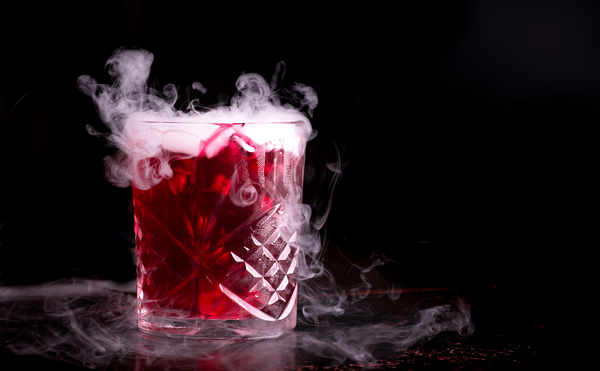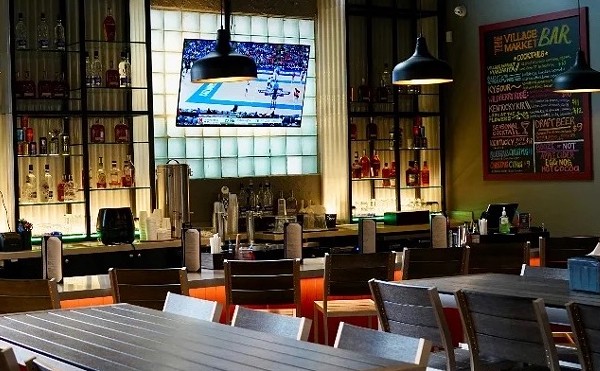I’m trying to recall the origin of this phrase: “Think globally, act locally.”
My best guess is that it arose during the 1960s in the context of the nascent environmental movement, although the concept behind the consciousness surely was articulated long before that. At some point in the early 1990s, a new axiom surfaced, quickly making the transition from source to bumper sticker: “Think globally, drink locally.”
It struck a chord and grows in significance with each passing year in beer. From the ends of the world to your town, there are conceptual linkages. Craft brewing’s explosive growth began with Americans mimicking Europe’s classicist beer styles. These imitations transitioned into distinctly indigenous recastings that now are bouncing back to the Old Country to influence an emerging generation of young brewers in places like Belgium, Denmark and Italy.
As an example, consider India Pale Ale (IPA), which originated in the early 1800s as an English solution to a specifically colonial exporting problem. In order to successfully ship ale to India, brewers went big, boosting the alcohol content and adding insane amounts of hops, both of which helped preserve and stabilize the product in transit. A new taste was created, emphasizing heft and bitterness.
Decades later, thanks to changing mores, wartime shortages and draconian taxing regimes, English IPA receded into less hoppy, weaker and emasculated irrelevance. American microbrewers subsequently adopted this unfairly orphaned style, supercharged it with hops from the Pacific Northwest, cranked up the gravity and gave us Imperial India Pale Ale — bigger, juicier, stickier and hoppier than ever.
Young European mavericks were watching … and tasting. Last May, I visited a Copenhagen brewpub called Norrebro, drank its Double IPA, and felt gratitude. Half a dozen Belgian micros are brewing their own singular versions of IPA. The trend even shows signs of taking hold in the United Kingdom, where a handful of regional brewers are going back to the future, inspired by American craft brewing’s adaptive reuse of hop-laden practice. Hops are poised to conquer the world … again.
Locally, the discerning beer enthusiast literally is offered a world of choices. There are American-made craft beers from metro, regional and national players. The same applies to imported beers, which range from the old-guard, mass-market Heineken, Modelo and Kirin lager franchises to proprietary Trappist ale, traditional German bock and the garage-scaled output of miniscule artisanal brewers with outsized global marketing savvy.
Given the multiplicity of choices, how does one approach the task of drinking locally? Indeed, what does it mean to drink locally? For me, first and foremost, it means patronizing locally owned businesses and independent operators irrespective of the ultimate source of the beer in my glass. Simply stated, the more of my money that stays here in the local community, the better. Chains may provide jobs, but the bulk of the money goes elsewhere. It isn’t necessary for me to subsidize far-off multi-nationals when the best beer selections in Metro Louisville are found at the independents.
Does drinking locally imply that the only beer worth drinking is brewed by local brewers? No, although beer brewed in Louisville is diverse in terms of style, uniformly of excellent technical quality, and the freshest in the marketplace. I own one of these breweries, but there’s room in the free market of craft ideals for beer brewed in St. Louis (Schlafly), Newport, Ore. (Rogue), Freising, Germany (Weihenstephaner), Scotland’s Orkney Islands (Skullsplitter), and many more.
Does “locally” mean “drink only American?” Perhaps much of the time, but not always, because we don’t have a craft lager culture that approaches Franconia’s, and Belgian Lambic is in a class by itself — so far. Arguably, there’ll always be a proper place for the better imports.
In terms of beer appreciation, thinking globally is relatively easy. All recognized beer styles possess local antecedents in a global context. They have arisen from highly localized ingredients, climates, cultures and conditions. Most, although not all, are capable of duplication. A rudimentary grasp of beer styles virtually ensures global vision.
Drinking locally? That’s not as easy to define, but one thing is clear: It can’t truly be achieved without diversity as a precondition of the marketplace, and providentially, we have it here in Louisville. It’s up to us to nurture and cherish our opportunities to think globally, drink locally and support the independents that do it best.
Roger Baylor is co-owner of the New Albanian Brewing Co. in New Albany. Visit potablecurmudgeon.blogspot.com for more beer.





